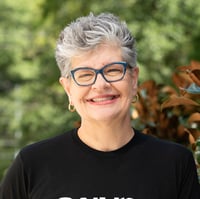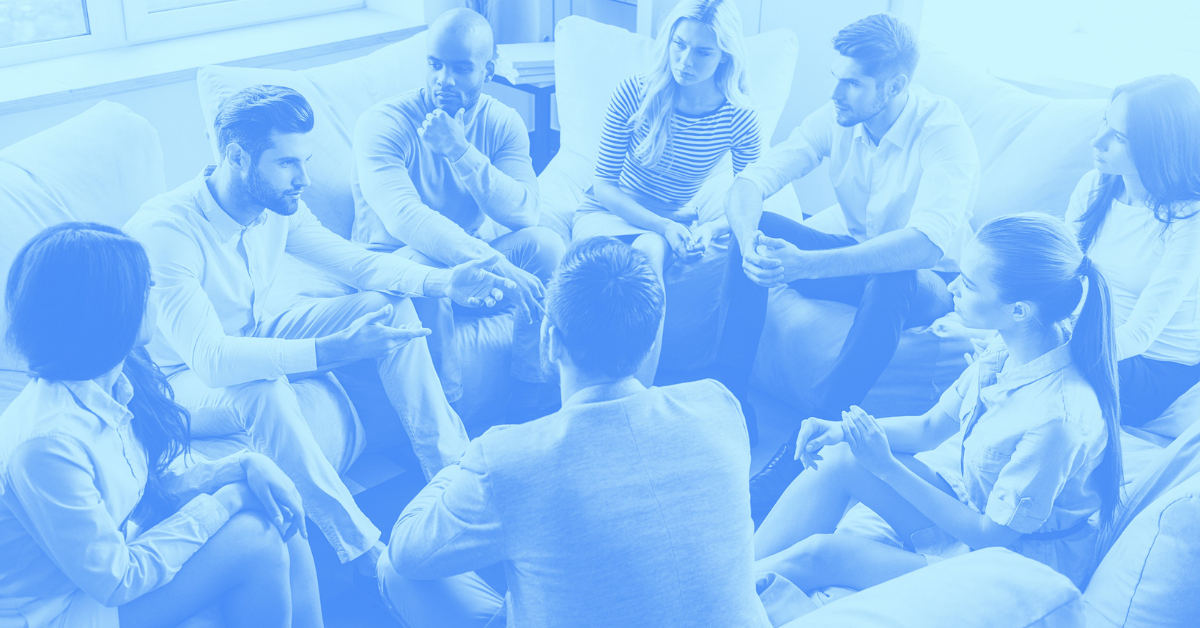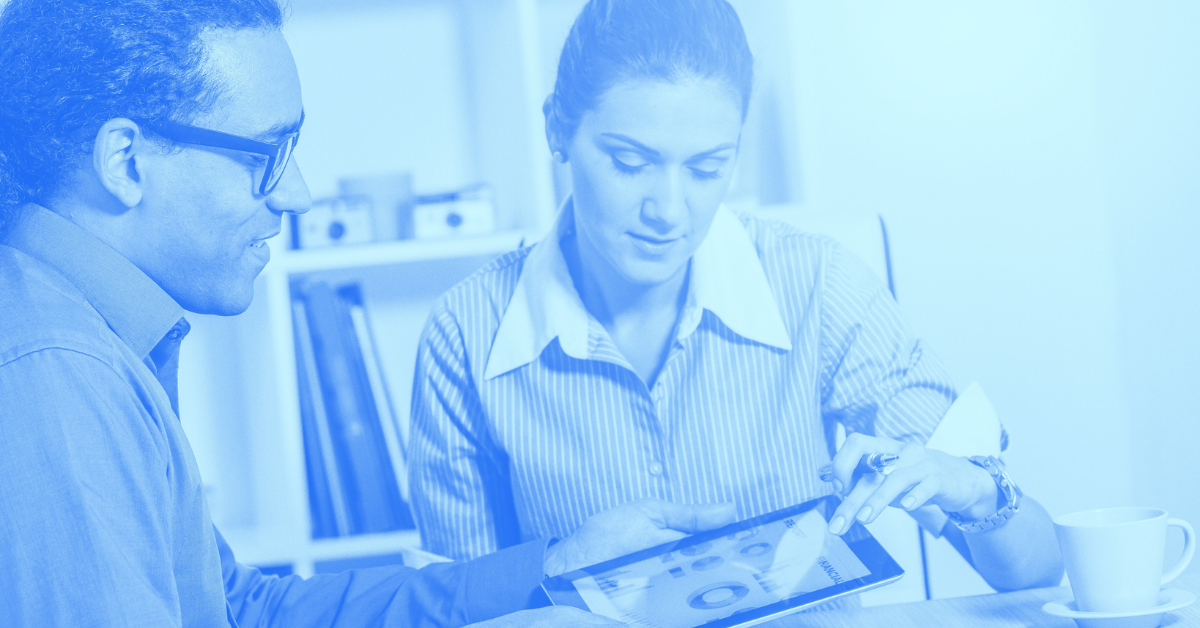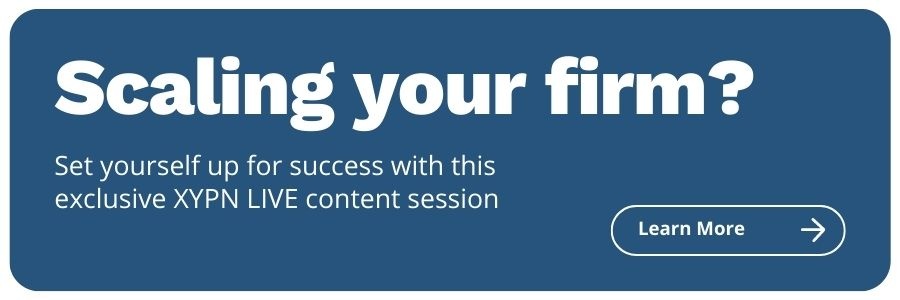Let's Talk About Allyship: What Would Arlene Say?
Share this
I was recently honored to be on Rianka Dorsainvil’s (CFP®) 2050 TrailBlazers podcast with Sonya Dreizler. The episode, titled Using Your Privilege as a White Woman, was a huge step outside of my comfort zone.
Not because I’m uncomfortable being an ally, but because I felt so totally unqualified to speak about allyship. Honestly, I’m just stumbling along as best I can.
I make mistakes, fall down, pick myself back up, apologize, and try again.
What Qualifies Me?
What qualifies me? Nothing. And that is the point I’m trying to make.
Any and all of us can be allies as long as we’re willing to actively engage in the process.
Although I’ve always considered myself to be an ally, I’ve gone the extra mile recently. What have I been doing?
- Asking questions. A lot of questions. I want to do my best to understand everything I can and empower others to speak up about their experiences.
- I’ve really been focusing on being open to stories, journeys, and feelings. Everyone’s voice matters, and I want to make sure that everyone feels heard.
- Letting go of defensiveness. Here’s the thing. Allyship isn’t about me. It’s not about me being blamed, and it’s definitely not about me denying anybody else’s experience just to defend myself.
- Spending time. I allow myself time to sit with what I hear and learn from it. Sometimes it takes a while to process someone else’s experience and think about how I can be supportive because their experience is unlike my own.
- Focusing on small steps. Even small steps are absolutely worth it. In fact, all steps are going to feel small at first. Celebrating wins for the diversity, inclusion, and equity movement within the financial planning profession and everywhere else in your life is important. Seeing other people be hateful can be disheartening, but stick with it.
- I make a lot of mistakes. You will too. Apologize readily and often—and mean it. Even if you don’t intend to offend anyone, it’s not about what you intended, it’s about how your actions were perceived.
- Realizing I have unlearning to do. A lot of times the mistakes I make are bad. I’ve been unintentionally racist. I’ve found myself putting my foot in my mouth more times than I can count. Even if I don’t ever intend to be offensive, the fact remains: As a person of privilege, I have a lot of unlearning to do. The way I perceive power and identity or the way I approach social situations isn’t always in everyone’s best interest. I need to focus on unlearning what I think I know in order to make space for everyone at the table.
- Stopped looking for a result. Again, this process isn't about me! Even if I don’t see a result right away doesn’t mean it doesn’t happen. And even if my active allyship doesn’t have an impact I see, that’s not why I’m doing it.
Again, I’m not perfect here. Far from it. But that’s how I know that if I can practice allyship at work and in life, you can too. This is important and there’s a lot at stake. Everyone should be involved in any capacity they can be. Now, let’s break down what “allyship” is, exactly.
What Makes an Ally?
Being an ally means a lot of different things, but I like how Rianka and her team at 2050 TrailBlazers defined it best:
Allyship is a verb, not a noun. Being an ally means engaging in an active process as a person of privilege to act in solidarity with marginalized groups. As allies, it’s our job to unlearn and reevaluate what we know about identity and power, make space for inclusivity, and both embrace and celebrate diversity in our organizations and our lives.
So, how do you practice allyship? I’m definitely not an expert, but I’d like to talk to you about a few things I’ve been doing that I feel have made a big impact on how I view the world, my relationships, the financial services industry, and my own life.
Be Your Own Educator
Being an ally is about learning on your own. Asking questions is great, but you can’t always expect your friends who are in the minority to be your “tour guide.” That’s completely unfair to them.
It’s problematic for a lot of different reasons. Namely, it’s unfair and offensive to put the responsibility on the shoulders of people who already live their lives with discrimination, hate, and an oppressive society to explain to a person of privilege why something is unfair, why they feel a certain way, or what something means that you don’t understand due to a difference in backgrounds.
That’s not cool. I am a perfectly capable adult who is equally capable of doing my own research, Googling terms I don’t know, and reading articles about issues that confuse me. Basically, my rule of thumb here is that if you can Google it, don’t ask. This should apply to allyship and life, in my opinion. Don’t make it someone else’s responsibility to educate you.
If you’re really feeling self-conscious or embarrassed about searching for terms you don’t understand, open a private browsing search tab. But I also want to reassure you that there is zero shame in admitting you don’t know something and wanting to learn more. In fact, I commend you for it. So step outside of your comfort zone, and get to Googling!
(As a side note, if you’re ready to dive into why looking for an explanation from others is problematic, check out this amazing episode of NPR’s Code Switch: Hold Up! Time For An Explanatory Comma.)
We All See Color, And Celebrating Those Differences is a Good Thing
I was raised thinking it was “right” to “not see color.” That phrase has become a cliché. Many people of a certain age were brought up thinking that was the progressive thing to do. Let’s take a look at how this is an issue.
When I was a kid, I was going to meet my best friend at the beach. My grandparents were in town, and they were the ones dropping me off. They had never met my best friend before. I pointed her and her family out to my grandparents by the color of the swimsuit she was wearing, not by the color of her skin. I didn’t use the fact that she was black as her identifier. My grandparents were thrilled. In fact, they lauded the fact that I was the grandkid who “didn’t see color.”
But recently, someone said something that really opened my eyes to how problematic that is: to deny someone’s race, or their sexual orientation, or their background, is to deny a large part of who they are. Not seeing color, or not acknowledging people for who they are, is a false goal.
I would never want to silence a big part of people’s lives for the sake of being “progressive.” Claiming we don’t see color is just pushing marginalized individuals to continue to conform to a white-washed society, and that’s the opposite of what allyship is all about.
Look For Racism In Our Society
Our society is inherently racist. It’s inherently discriminatory. There are systems in place almost everywhere you look that keep marginalized people marginalized. And that’s a problem.
Do you struggle to see racism and discrimination in our world? Let’s look at a few examples together.
- Imagery in the media. Does anyone remember the image choices used to represent Brock Turner? He was swimming, smiling, wearing a suit and tie. Do you notice other images used to define people of color who are on trial? They’re rarely as flattering.
- Word choice. I recently saw a word choice that stunned me in the news. After a hurricane, white people in an affluent neighborhood were salvaging different grocery stores. During similar natural disasters, traditionally black neighborhoods were described as “looting.” The items were the same—diapers, paper towels, necessary toiletries. Words make a big difference.
The next step is to look for racism, or discrimination, in yourself. Try to catch yourself in moments when you’re unaware. How do you react when you see someone, or something, that’s different from what you’re used to?
When you’re confronted with anything other than your comfort zone, what’s your reaction? Do you feel uncomfortable yet?
You’re not alone.
The key is to embrace this discomfort and move forward trying to do better. Like I said, we’re all unlearning what we thought we knew. And understanding what your own faults are is key to moving forward as a better, more inclusive person.
Build High-Quality Relationships
We feel comfortable around our friends, and that sometimes means we take advantage of them. But, as allies, we need to make sure our relationships are going beyond being a tour guide. It’s easy to have one go-to source to answer questions you may have, especially if you’re new to this journey of advocacy. Make a point to go further. For a long, long, time I felt like my only conversations with Rianka of the 2050 TrailBlazers podcast were focused on helping me see what I was missing.
That was such a huge mistake, one for which I eventually apologized. Rianka is a wealth of knowledge, intelligence, kindness, and patience. She educates beautifully, and I’m proud to know her. But you know what? She’s so much more than an educator in the diversity and inclusion space. She’s hilarious, for starters. She’s passionate about financial planning, family, friends, and faith. She is an all-around incredible person. I’ve recently tried to take things a step further to get to know her on a deeper level. I always want to know her as her full, best, passionate self. And that’s how I want to know all of my friends!
Relying on friends as a tour guide degrades your relationship, and can force them to explain rather than giving them the space to be fully themselves. I understand feeling comfortable to ask questions with people you know and love, but make sure you’re going beyond that, too It’s not their responsibility to educate you.
Read the Room
Sometimes asking questions, or wanting to embrace uncomfortable conversations, is necessary. But before you start these conversations, read the room. Not everyone is ready to dive into a conversation about their experience, especially in a professional setting. You’re not always going to get it right.
Here’s a trick: if you’re eager to ask questions, ask permission first. This is something new I’ve been trying, and it’s making a world of difference in my life and my relationships.
Don’t walk up to people and start asking intensely personal questions. Would you like it if someone did that to you? Ask if this is the time or the place for the conversation you want to have and if the answer is “No”, ask what the best way to circle back to it is. Remember to also give them room to say “no” indefinitely. I seriously can’t repeat this enough: it’s not someone else’s responsibility to educate you. D o yourself (and everyone else!) a favor: ask permission first.
Push Yourself to Be In The Minority
Want to further improve your ability to be an ally? Push yourself to be in the minority for a change. Need some ideas to give this a try? Here are a few that I love:
- Go to a different park
- Go to a different church
- Visit a restaurant where you are the only white person
- Try a new mall
- Do charity work where you are different than the other people who volunteer
This last one in particular is something I’m currently loving. I don’t mean do charity work where you’re different from the people you are helping. Go somewhere the volunteers are different from you.
For example, I volunteered for a time with a group that supports LGBTQ youth. The vast majority of the volunteers have a connection to the group. I was the only one who neither identified as LGBTQ, nor had an immediate family member who did. The other participants were really confused about why I was there. I thought about bailing, to be honest.
I wasn’t sure my presence was welcome. But the director made a point of telling me how important it was for these kids to see love from someone who was not like them—from an outsider. And then I got it. It’s that “show up and shut up” mentality bubbling up to the surface again. I’m not going to pretend my experience wasn’t hard for me. It was really uncomfortable to feel like the odd woman out! But you know what? This is what marginalized groups experience every day.
I thought a lot about how uncomfortable it was to be out of my “zone” in that volunteer experience. I wanted to run back to my comfort zone so badly. I felt like I needed to behave a certain way for fear of being judged. I felt similarly when I spoke on the 2050 TrailBlazers podcast. I felt the pressure to represent all white women, and to represent them well.
Then I thought: What if that was work everyday? What if, while I was running errands every week, I felt like I was in the minority? What if every financial planning conference I attended felt that way?
That’s called empathy. As allies, it’s our job to feel it often and to really let it sink in. People who are marginalized feel this way most if not all of the time, and we need to work to make spaces more diverse and inclusive. We need to work to give them the megaphone, to show our silent support and “spend” our privilege to lift up marginalized voices.
In the Financial Planning Profession
Are you looking to make a difference in the financial planning profession? Me too! I’ve been putting a lot of thought into how we can be more inclusive right here in the financial services industry. I’ve come up with one big difference we can start making right now to make our profession more inclusive:
We need more inclusive hiring practices.
But here’s the thing: You can’t hire who you don’t know. You can’t refer who you don’t know. So we need to start by KNOWING. So, let’s talk about how we can get started knowing everyone in the profession. You can:
- Greet people at conferences who don’t look like you
- Offer to grab a coffee between breaks to get to learn more about them
- Invite planners of color and underrepresented groups to events
- Mentor students at conferences
- Include new people in your group at events. Try not to end up with a group of all people you already know. This forces us to break outside of our circles to meet new people and be inclusive.
Remember, none of this is because you need some kind of diversity “quota” in your life. You want genuine relationships with people you like, know, and trust. And liking, knowing, and trusting people who aren’t exactly like you is a fantastic way to learn about yourself, learn about others, broaden your horizons, and grow your capacity as a human being.
Who you know impacts your hiring, speaking recommendations, committee volunteer opportunities, freelance work, podcast guests. There are endless opportunities. Keep your eyes, ears, and hearts open.
Remember: One Small Action Can Make a World of Difference
Working on being an ally can be confusing if you’re not sure where to start. So many people get stuck in the “sticker” stage of the diversity and inclusion movement. They want everyone to know they’re there and they’re supportive. I believe everyone needs to start somewhere, and doing it for the “sticker” is a good jumping off point. But it’s our job as allies to dig deeper and truly work to create an inclusive space in the financial planning profession.
Remember, there is always more! There is more room at the table, more success to be had, more platforms to speak. There’s always, always more. Helping others is not about giving up what is yours. It’s about finding more and making space for everyone.
Inclusion isn’t denying the value of what and who you are, even if you’re a person with privilege. It is giving value to variety and lifting one another up. It is making more for all.
Even if you start small with one conversation, or one supportive action, you’re starting. You can’t change the world, or this profession, in one day. But every day you can change something small as an ally. You can learn something new and stretch yourself to be the support that someone else might need, or the megaphone that gladly amplifies their voice. You can make a little bit more room for everyone at the table.
With that, I’ll leave you with several resources to further you along in your journey as an ally:
 About Arlene Moss, Executive Coach
About Arlene Moss, Executive Coach
Arlene gets a kick out of helping financial advisors get over being overwhelmed and take on their frustrations so their businesses soar. Arlene works to ensure XYPN members are able to help their clients prosper while creating a sustainable business model. Through XYPN Academy and one-on-one coaching, members get the support they need to grow their businesses and overcome the challenges that come their way.
Share this
- Running Your RIA Efficiently: Outsourcing Bookkeeping with XYPN Books
- Road to Launch with XYPN Member Alan Skillern, CFP®, MBA
- Coaching for Better Time Management: Prioritizing Organic Growth in Your Daily Routine
- Boost Your Financial Advisory Practice: SEO Strategies and CRM Optimization for Sales Success
- Advisor Blog (693)
- Financial Advisors (221)
- Growing an RIA (99)
- Digital Marketing (87)
- Marketing (84)
- Community (81)
- Start an RIA (76)
- Business Development (72)
- Coaching (72)
- Running an RIA (70)
- Compliance (69)
- Client Acquisition (65)
- Technology (64)
- XYPN LIVE (59)
- Entrepreneurship (57)
- Sales (49)
- Practice Management (44)
- Client Engagement (41)
- Bookkeeping (38)
- XYPN Books (38)
- Investment Management (37)
- Fee-only advisor (36)
- Lifestyle, Family, & Personal Finance (31)
- Employee Engagement (30)
- Client Services (25)
- Financial Education & Resources (25)
- Journey Makers (21)
- Market Trends (21)
- Process (14)
- Niche (11)
- SEO (9)
- Scaling an RIA (9)
- Career Change (8)
- Transitioning Your Business (7)
- Partnership (6)
- Transitioning To Fee-Only (4)
- Social Media (3)
- Transitioning Clients (3)
- Emerald (2)
- Persona (2)
- RIA (2)
- Onboarding (1)
- Sapphire (1)
Subscribe by email
You May Also Like
These Related Stories

Study Groups: Because You Can't Go It Alone... And You Shouldn't Have To! - What Would Arlene Say?
Sep 28, 2017
4 min read

Changing the Financial Services Industry One Conversation at a Time
Jan 21, 2019
4 min read





